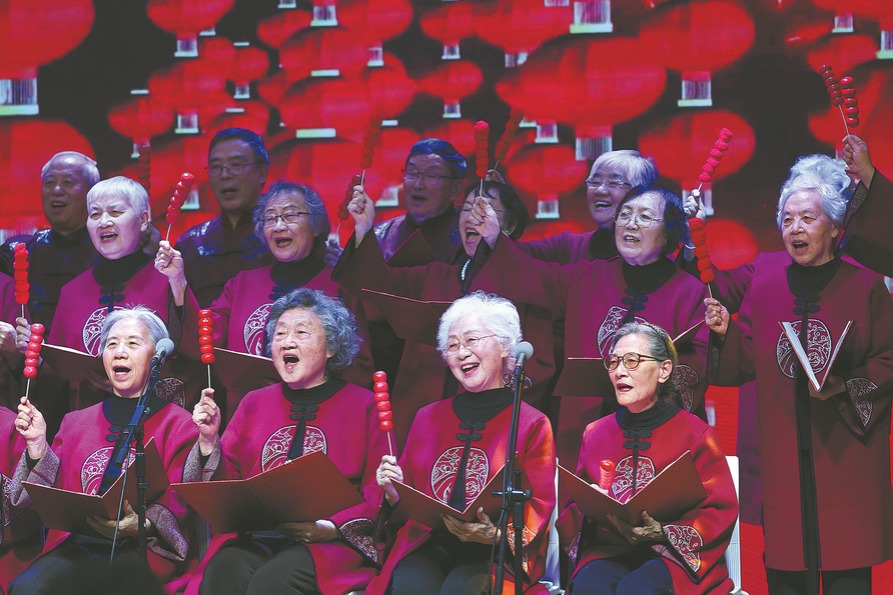California teacher sees value in Chinese education

Eric Peterson, principal of West County Mandarin School in Pinole, California, has just returned from taking nearly 50 students and teachers on a cultural tour around Beijing, and he's already planning another for this summer.
"The Chinese students and families treated our students so well, and even now they're all communicating on WeChat with each other," Peterson says.
During their visit last month, the American students stayed with host families in Beijing, toured historical sites, and even sang American and Chinese pop songs alongside their Chinese peers — a moment Peterson called "really beautiful to see".
Peterson made the remarks during a recent interview that coincided with Chinese Language Day, an annual observance established by the United Nations in 2010 and held on April 20 each year. Chinese Language Day honors the Chinese language and its rich cultural heritage, celebrates multilingualism and cultural diversity, and promotes equal use of all six official UN languages.
Peterson witnesses firsthand the growing enthusiasm for Chinese language education in his school district, evidenced by the long waiting list for enrollment at his school.
Founded in 2017, West County Mandarin School serves kindergarten through sixth grade and plans to extend one grade per year until it reaches eighth grade. The school's humble beginnings involved Peterson personally recruiting families by approaching parents with children at local shopping centers. From those grassroots efforts, enrollment has climbed to 530 students this year, with roughly 585 expected next fall — a testament, he says, "to the great appreciation of Chinese language".
What makes West County Mandarin School notable is its diverse student body. "At our school, the majority of the students are not of Chinese heritage," he says. "We have students from all different racial and ethnic backgrounds."
According to the principal, the school also deliberately sets aside half of its seats for students from low-income families, ensuring accessibility across socioeconomic backgrounds. Parents' interest in Chinese language education stems from recognizing its future value for their children, regardless of their cultural background, says Peterson. As word spread about students enjoying Chinese language and culture while excelling academically, the waiting list grew substantially.
To provide students with authentic cultural experiences, Peterson began organizing trips to China in 2018. The school worked to keep costs manageable, making these educational journeys accessible to more students.
This July, he aims to take about 100 students on a 21-day trip that will earn them both high school and community-college credits. He says that beyond academic gains, these journeys open the students' eyes to China's rapid development and warm hospitality — contrary to what they encounter in media.
"It was really good for American students to see how students in other countries learn and value education," he adds.
Peterson believes that California's historical connection to Chinese culture had created deep-rooted appreciation for Chinese language and heritage throughout the region.
"Regardless of what's happening in the higher levels of international trade or politics, people see the people-to-people connections and the importance of learning the language," he says.




































